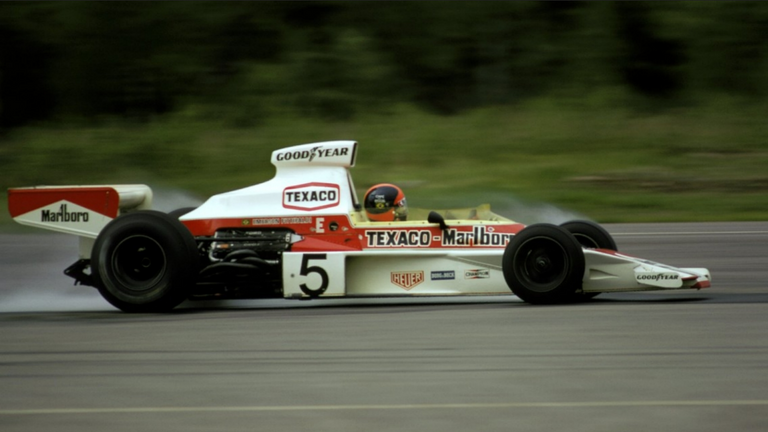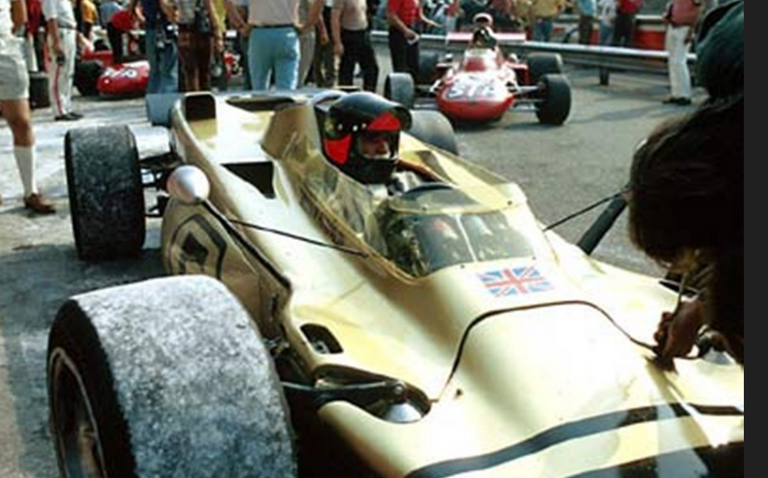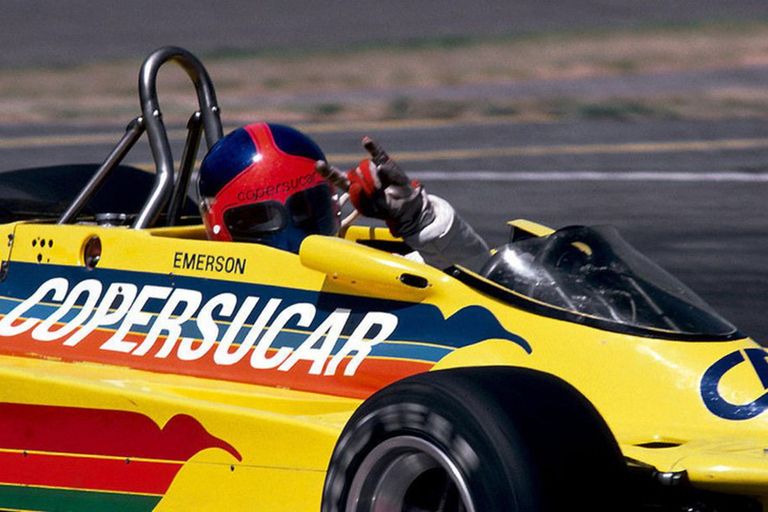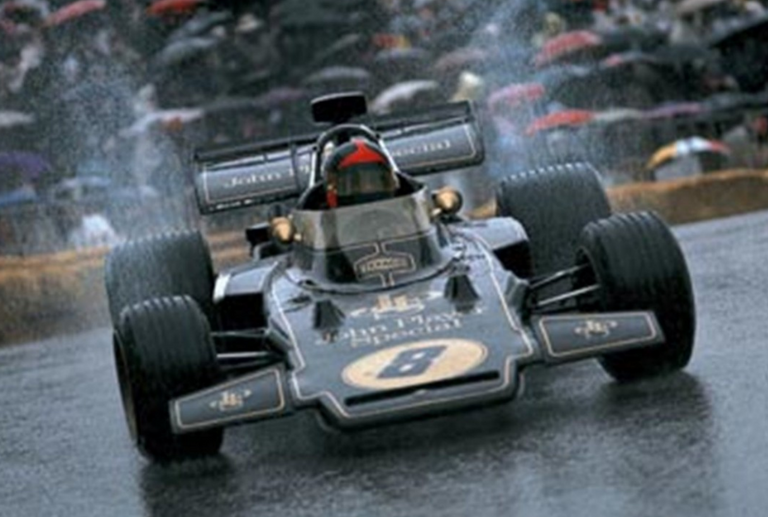
Brasil ha sido, a nivel deportivo en el último medio siglo sinónimo no sólo de fútbol sino también de automovilismo, y en lo específico de Fórmula Uno.
Y eso lo ha logrado a través de una pléyade de pilotos que han sabido conquistar en un lapso no superior a los veinte años (entre 1972 y 1992) nada menos que ocho títulos mundiales. Todo un récord.
Era la época de la F1 en la cuál todavía no se había manifestado el absoluto predominio de ciertos pilotos y constructores. Como Michael Schumacher-Ferrari en el período 2000-2004 y en la actualidad Lewis Hamilton-Mercedes desde el 2014 hasta la actualidad con una breve interrupción a nivel pilotos en el 2016 cuando a ganar el campeonato fue el alemán (de origen finés) Nico Rosberg.
Cuando los triunfos se alternaban y verdaderos fenómenos competían directamente en el mismo equipo como Ayrton Senna y Alain Prost
Brasil llegó a tener (y tiene aún) un papel preponderante en la F1 a punto tal de ser el país latinoamericano con más presencias continuadas en organizar un GP de F1, superando incluso en ese aspecto a una potencia como México.
Tal vez la explicación está dada en que el país azteca no ha tenido tantos grandes campeones como el carioca.

In the last half century, Brazil has been synonymous not only with soccer but also with motor racing, specifically Formula One.
And this has been achieved through a pleiad of drivers who have managed to win no less than eight world titles in a period of no more than twenty years (between 1972 and 1992). Quite a record.
It was a time in F1 when the absolute dominance of certain drivers and constructors had not yet become apparent. As Michael Schumacher-Ferrari in the period 2000-2004 and currently Lewis Hamilton-Mercedes from 2014 to the present with a brief interruption at driver level in 2016 when to win the championship was the German (of Finnish origin) Nico Rosberg.
When the triumphs alternated and true phenomena competed directly in the same team as Ayrton Senna and Alain Prost.
Brazil came to have (and still has) a preponderant role in F1 to the point of being the Latin American country with more continuous presences in organizing an F1 GP, surpassing even in that aspect a power like Mexico.
Perhaps the explanation is that the Aztec country has not had as many great champions as the Carioca.
Tres fenómenos que ganaron ocho campeonatos mundiales. / Three phenomena who won eight world championships.

El primero de estos tres fenómenos -y del cuál me ocuparé más extensamente más adelante fue Emerson Fittipaldi, idolo indiscutido de los brasileños, icono del deporte motor y el único piloto que logró, gracias a la fuerza de su imagen, que se construyera un prototipo de F1 en su propio país: el Copersucar.
Bicampeón mundial de F1 en 1972 con Lotus y en 1974 con McLaren en una década de grandes pilotos: Jackie Stewart, su principal rival ganador del título mundial de pilotos en los años que el brasileño no pudo hacerlo: en 1971 y en 1973 con Tyrrell.
En medio a estos pilotos consolidados comenzaba a decir presente con su capacidad para adminsitrar las carreras Niki Lauda. De él me ocupé en este post.
Los pilotos restantes brasileños fueron Nelson Piquet también ganador de dos mundiales en 1981 y 1983 con Brabham y el enolvidable Ayrton Senna con tres mundiales obtenidos en 1988, 1990 y 1991
Dos décadas de dominio alternado brasileño. Algo que nunca había ocurrido antes y tampoco ocurrió después. Los fenómenos a veces nacen por efecto de fuerzas misteriosas si queremos darle un toque de misterio. Pero la realidad es esa.
Todos ellos surgieron de las categorías inferiores del automovilismo mundial hasta acceder a la F1 y después, por supuesto, se sentaron en un butaca con el apoyo más o menos consistente de algunos esponsors. Y desde esa butaca demostraron todo su valor deportivo.
Es difícil nombrar un ídolo brasileño total en la F1. Tal vez habría que vivir en Brasil y compenetrarse del sentimiento popular. Pero desde una perspectiva externa pienso que por su muerte prematura, su estilo de guia inolvidable -considerado por muchos como el piloto más veloz en la historia de la F1- y por su natural propensión a la timidez y a la humildad Ayrton Senna se ubica en la parte más alta del podio. Su recuerdo es aún bastante reciente a diferencia de un fenomenal Emerson Fittipaldi que no solo logró aunar el sentimiento popular con el deportivo cuando al final de su carrera se puso a la guia del Copersucar pero que de a poco va ocupando el lugar de los recuerdos un poco más lejanos.
En el medio Nelson Piquet un piloto al que tal vez le faltaron algunos elogios y reconocimiento popular. O que tal vez tuvo que luchar, en el medio de esas dos décadas, con dos "monstruos sagrados, antes y después, del automovilismo mundial como fueron Fittipaldi primero y Senna después. En común con Senna tuvo la lucha contra el enemigo de ambos Alain prost, el "profesor" como lo llamaban en aquel entonces, el piloto francés capaz de grandes carreras increíbles.

The first of these three phenomena -and of which I will deal more extensively later on- was Emerson Fittipaldi, undisputed idol of the Brazilians, motorsport icon and the only driver who managed, thanks to the strength of his image, to have an F1 prototype built in his own country: the Copersucar.
Two-time F1 world champion in 1972 with Lotus and in 1974 with McLaren in a decade of great drivers: Jackie Stewart, his main rival, won the world drivers' title in the years when the Brazilian could not do it: in 1971 and 1973 with Tyrrell.
In the midst of these consolidated drivers, Niki Lauda began to make his presence felt with his ability to manage the races. I dealt with him in this post.
The remaining Brazilian drivers were Nelson Piquet, also winner of two world championships in 1981 and 1983 with Brabham and the unforgettable Ayrton Senna with three world championships obtained in 1988, 1990 and 1991.
Two decades of alternating Brazilian dominance. Something that had never happened before and never happened afterwards. Phenomena are sometimes born by the effect of mysterious forces if we want to give them a touch of mystery. But that is the reality.
All of them emerged from the lower categories of world motorsport until they reached F1 and then, of course, they sat in a seat with the more or less consistent support of some sponsors. And from that seat they demonstrated all their sporting value.
It is difficult to name a total Brazilian idol in F1. Maybe you would have to live in Brazil and understand the popular sentiment. But from an external perspective I think that because of his premature death, his unforgettable driving style - considered by many as the fastest driver in F1 history - and his natural propensity for shyness and humility, Ayrton Senna stands at the top of the podium. His memory is still quite recent, unlike the phenomenal Emerson Fittipaldi, who not only managed to combine popular sentiment with sporting sentiment when, at the end of his career, he took the wheel of the Copersucar, but who is gradually taking the place of memories that are a little more distant.
In the middle Nelson Piquet, a driver who perhaps lacked some praise and popular recognition. Or maybe he had to fight, in the middle of those two decades, with two "sacred monsters, before and after, of world motorsport, such as Fittipaldi first and Senna later. In common with Senna he had to fight against the enemy of both Alain Prost, the "professor" as he was called at the time, the French driver capable of great and incredible races.
Emerson Fittipaldi el bicampeón y el Copersucar. / Emerson Fittipaldi, the two-time champion and Copersucar.

Emerson Fittipaldi fue un caso atípico en la Fórmula 1. Porque cuando estaba todavía en ápice de su carrera decidió abandonar la seguridad de un equipo de primer nivel como lo era en aquél entonces McLaren y construir su equipo propio.
Hoy en día sería utópico pensar en un Lewis Hamilton que deje la tranquilidad de su Mercedes para pasar a guiar un monoplaza ignoto de construcción nacional. Cuentan solo los triunfos y el sueldo que perciben. Cuanto más numerosos sean los primeros y más alto el segundo mejor. El fin de la carrera de estos pilotos no se avizora aún. Y el mismo razonamiento podría ser hecho con Michael Schumacher. Nunca dejan sus equipos en el cual son permanentemente mimados. En todo caso es el equipo que decide prescindir de ellos. Pora razones técnicas o económicas. Cito solo los dos ejemplos más eclactantes a nivel de resultados en los últimos años.
Emerson Fittipaldi decidió transitar, deportivamente hablando, por la vereda opuesta. La que implicaba la satisfacción de ser el primer piloto en guiar un auto de construcción brasileña en toda la historia de la F1. Y abandonar los logros conseguidos hasta el presente.
Pasar de la seguridad y la comodidad de un primer equipo de Fórmula 1 a la incógnita y la incertidumbre de un debut en un equipo nuevo. Con ese sentimiento de patriotismo deportivo a veces un poco demagógico pero siempre agradable. Que terminó transformándose en un fracaso deportivo para el piloto que desde niño soñaba con parecerse a Juan Manuel Fangio, el quintiple campeón argentino, hasta en la forma de pisar el acelerador. En su momento fue el piloto más joven en ganar un GP de F1 logrando retener ese récord durante más de tres décadas hasta que le fue arrebatado por Fernando Alonso en el año 2005.
Una carrera rápida y con resultados inmediatos en la máxima categoría del automovilismo deportivo. Debuta en 1970 con Lotus y le alcanzan dos años para coronar su sueño de campeón mundial, en 1972. una pasua en 1973, pasa a McLaren y en 1974 obtiene su segundo título. Siendo subcampeón en 1973 y 1975.
Corre todavía un año (1975 con el Marlboro Team McLaren y decide con su hermano Wilson emprender la gran aventura de construir su propio equipo. Llevaba solo cinco años en Fórmula 1 y había ganado (casi) todo.
En ese año debuta el Copersucar en un modo experimental guiado por su hermano Wilson. Los resultados dejan mucho que desear pero están dentro del proyecto de sumar experiencia. Su nombre era el homónimo de la empresa refinadora de azúcar y alcohol.
Desde 1976 hasta 1980 Emerson fue el piloto principal pero lo resultados nunca colmaron las expectativas. Sus mejores ubicaciones al final del Mundial de Pilotos fue el séptimo puesto obtenido en 1978 con 17 puntos y el noveno puesto en 1980 con 11 puntos.
Los dos últimos años de existencia del equipo siempre alimentado con el motor Ford Cosworth los pilotos fueron Keke Rosberg y el brasileño Chico Serra con un resultado catastrófico: 0 puntos y 1 punto en todo el campeonato respectivamente.
Fin de un proyecto y de una ilusión que tuvo a los aficcionados al deporte motor en Brasil en vilo durante más de un lustro.
A pesar que el equipo había trasladado su sede en el Reino Unido la falta de experiencia y de desarrollo le jugó una mala pasada.
El sueño brasileño bautizado Fittipaldi Automotive, por su fundador el popular "Emmo" como se lo conocía en su paìs, terminó mal, deportiva y legalmente: acusado de uso indebido de fondos públicos nunca más volvió a ganar un gran premio y terminó cubriéndose con el velo piadoso del olvido después de despertar tantas ilusiones.

Emerson Fittipaldi was an atypical case in Formula 1. Because when he was still at the apex of his career he decided to leave the security of a top level team like McLaren at that time and build his own team.
Today it would be utopian to think of Lewis Hamilton leaving the tranquility of his Mercedes to guide an unknown single-seater of national construction. The only thing that counts are the victories and the salary they receive. The more numerous the first and the higher the second, the better. The end of the career of these pilots is not yet in sight. And the same reasoning could be made with Michael Schumacher. They never leave their teams in which they are permanently pampered. In any case it is the team that decides to dispense with them. For technical or economic reasons. I cite only the two most striking examples in terms of results in recent years.
Emerson Fittipaldi decided to take the opposite path, sportingly speaking. The one that implied the satisfaction of being the first driver to drive a Brazilian-built car in the history of F1. And to abandon the achievements made so far.
To go from the security and comfort of a first Formula 1 team to the unknown and uncertainty of a debut in a new team. With that feeling of sporting patriotism, sometimes a bit demagogic but always pleasant. That ended up turning into a sporting failure for the driver who since childhood dreamed of resembling Juan Manuel Fangio, the five-time Argentinean champion, even in the way he stepped on the accelerator. At the time, he was the youngest driver to win an F1 GP, holding that record for more than three decades until it was snatched away by Fernando Alonso in 2005.
A fast career with immediate results in the highest category of motorsport. He made his debut in 1970 with Lotus and in 1972 he had just two years to crown his dream of becoming world champion. In 1973, he moved to McLaren and in 1974 he won his second title. He was runner-up in 1973 and 1975.
He raced for another year (1975) with the Marlboro Team McLaren and decided with his brother Wilson to undertake the great adventure of building his own team. He had only been in Formula 1 for five years and had won (almost) everything.
In that year the Copersucar debuts in an experimental mode guided by his brother Wilson. The results left much to be desired but were part of the project to add experience. Its name was the homonym of the sugar and alcohol refining company.
From 1976 to 1980 Emerson was the main driver but the results never met the expectations. His best positions at the end of the Drivers' World Championship were seventh place in 1978 with 17 points and ninth place in 1980 with 11 points.
The last two years of the team's existence, always powered by the Ford Cosworth engine, the drivers were Keke Rosberg and the Brazilian Chico Serra with a catastrophic result: 0 points and 1 point in the whole championship respectively.
It was the end of a project and an illusion that kept the Brazilian motorsport fans in suspense for more than five years.
Although the team had moved its headquarters to the United Kingdom, the lack of experience and development played a dirty trick.
The Brazilian dream, baptized Fittipaldi Automotive, after its founder, the popular "Emmo" as he was known in his country, ended badly, sportingly and legally: accused of misuse of public funds, it never won another Grand Prix and ended up being covered with the pious veil of oblivion after awakening so many illusions.

Traducción del texto efectuada con DeepL Translator en su versión gratuita.
Text translation performed with DeepL Translator in its free version /

El banner titulado Reseñas Deportivas / Sports Reviews personalizado por el autor es propiedad de PNGWing.
The banner titled Reseñas Deportivas / Sports Reviews customized by the author is property of PNGWing.
| Blogs, Sitios Web y Redes Sociales / Blogs, Webs & Social Networks | Plataformas de Contenidos/ Contents Platforms |
|---|---|
| Mi Blog / My Blog | Los Apuntes de Tux |
| Mi Blog / My Blog | El Mundo de Ubuntu |
| Mi Blog / My Blog | Nel Regno di Linux |
| Mi Blog / My Blog | Linuxlandit & The Conqueror Worm |
| Mi Blog / My Blog | Pianeta Ubuntu |
| Mi Blog / My Blog | Re Ubuntu |
| Mi Blog / My Blog | Nel Regno di Ubuntu |
| Red Social Twitter / Twitter Social Network | @hugorep |
| Blurt Official | Blurt.one | BeBlurt | Blurt Buzz |
|---|---|---|---|
 |  |  |  |

Upvoted. Thank You for sending some of your rewards to @null. Read my last posts to make sure that BLURT burning is profitable for you. Before using this bot please make sure your account has at least 100 BP. Get more BLURT:
@ mariuszkarowski/how-to-get-automatic-upvote-from-my-accounts@ blurtbooster/blurt-booster-introduction-rules-and-guidelines-1699999662965@ nalexadre/blurt-nexus-creating-an-affiliate-account-1700008765859@ kryptodenno - win BLURT POWER delegationNote: This bot will not vote on AI-generated content
Telegram and Whatsapp